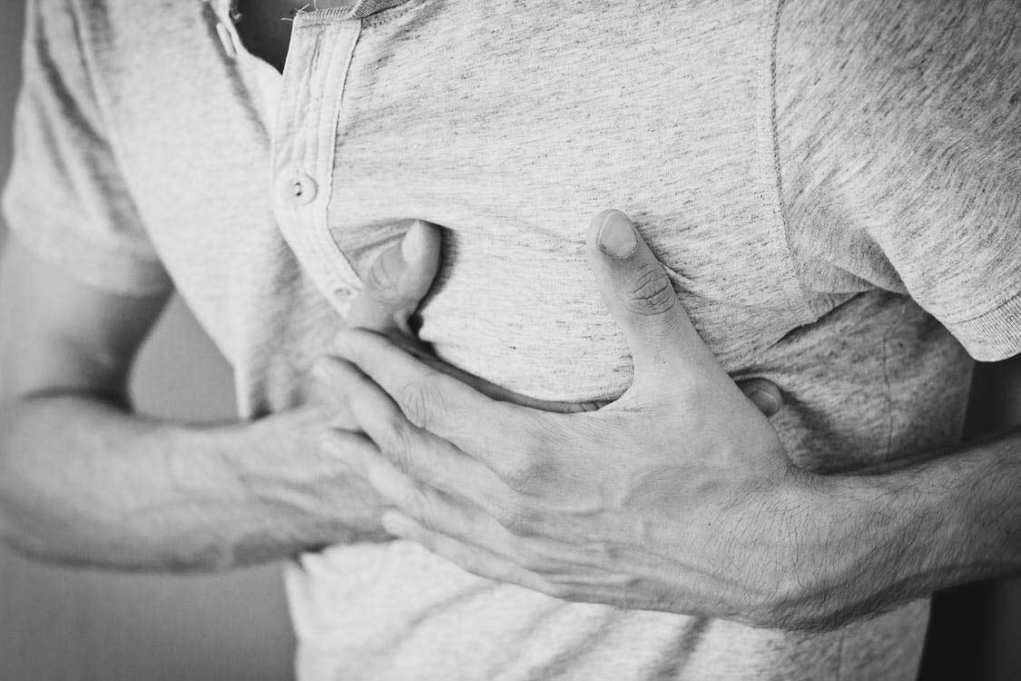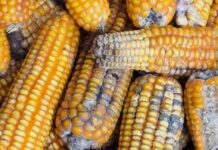
You know it all too well. Heartburn. That fiery sensation that grabs hold of your lower chest after you eat something you know you shouldn’t have. What often follows is that sour or bitter taste of acid reflux in your throat and mouth that can last minutes (if you are lucky) or hours (if you are not).
Yes, millions of us are familiar with the discomfort of heartburn, a condition in which stomach acids back up into the esophagus. The good news is that heartburn is largely avoidable if you steer clear of the top 10 heartburn foods. It also helps to avoid certain classic heartburn-inviting situations.
From coffee and liquor to tomatoes and grapefruit, experts tell WebMD that certain foods are known heartburn triggers.
Here’s what you need to know about the top 10 heartburn foods.
Heartburn and Tangy Citrus Fruits
Oranges, grapefruits and orange juice are classic heartburn foods. “These are very acidic,” says Robynne Chutkan, MD. Chutkan is the founder of the Digestive Center for Women in Chevy Chase, Md. and a gastroenterologist at Georgetown Hospital in Washington, D.C. “As a result of being so acidic,” she says, “they are likely to cause heartburn, especially when consumed on an otherwise empty stomach.”
Heartburn and Tomatoes
While they might be chockfull of healthy nutrients like lycopene, Chutkan tells WebMD that tomatoes are also highly acidic and likely to cause heartburn in those who are prone to it.
The acid antidote may be a sour ball, according to Daniel Mausner, MD. Mausner is the section head of gastroenterology at Mercy Medical Center in Rockville Center, N.Y. “Things that promote saliva — like sour balls — are good for acid reflux,” he says, “because saliva neutralizes the acid that comes up from your stomach.”
Heartburn and Garlic and Onion
Bonnie Taub-Dix, MA, RD, says, “Some people with heartburn do not do well with either garlic or onion.” Taub-Dix, a spokeswoman for the American Dietetic Association, is a nutritionist in private practice in New York City and Woodmere, N.Y. “It’s all very individual,” she says. For avoiding heartburn, she offers the following suggestion: “Keep a food log to help you track the foods that are your heartburn offenders, and try to develop a list of safe foods.” Foods like broiled chicken, baked sweet potatoes, toast, or cottage cheese, she says, are on the safe side of the heartburn food list.
Heartburn and Spicy Foods
Pepper, Mexican food, chili, and any other food that is loaded with pepper or other spices can trigger heartburn, says Deepa A. Vasudevan, MD. Vasudevan is an assistant professor of family medicine at The University of Texas Medical School at Houston. He tells WebMD that avoiding heartburn isn’t necessarily a matter of all or nothing. “If spicy food triggers your heartburn, avoid it. Then slowly reintroduce milder versions of whatever you like.”
Heartburn and Peppermint
Chutkan says that while many people think peppermint is soothing for the tummy, it is actually a heartburn trigger food. Her advice? Skip the after-dinner mints — especially after a rich meal. “They may be good for your breath on a date,” she says, “but they are not so good if you are prone to heartburn.”
Peppermint may increase your chances of heartburn because it relaxes the sphincter muscle that lay between the stomach and esophagus. This allows stomach acids to flow back into the esophagus.
Heartburn and Cheese, Nuts, Avocadoes, and a Juicy Rib Eye
What do these foods have in common? They are all high in fat, according to Chutkan. “These foods may not get as much press as acidic foods when it comes to heartburn,” she says, “but they can be major triggers.” Here’s why: Fat slows down the emptying of the stomach, so there is more opportunity for a big distended stomach — which increases pressure on the esophageal sphincter — to make heartburn more likely.
Chutkan says that doesn’t mean you can never have those foods again. “Don’t have a cheese plate at the end of a meal,” she suggests. “Instead, eat it early in the day when you are not already full.” Remember, a serving of cheese is roughly the size of two dice.
Heartburn and Alcohol
Wine, beer, or your favorite cocktail can all trigger heartburn, says Chutkan, especially when they are imbibed with a large meal. “If you have a meal of steak, creamed spinach, and lobster bisque and then alcohol on top of that,” she says, “you may be in for it.”
Taub-Dix agrees. “A glass of red wine may not be a big deal on its own,” she points out. “But if you also have tomato sauce on your pasta and a glass of orange juice in the morning on an empty stomach, it could be a problem.” Like peppermint, alcohol opens the sphincter, allowing the acid free range.
Heartburn and Caffeine
Coffee, soda, tea, iced tea, and any other food or beverages that contain caffeine are big offenders. But java junkies don’t have to give up their Joe forever, Chutkan tells WebMD. “It’s not ‘no coffee ever’ if you have heartburn. It’s about cutting down and paying attention to portion sizes. A Starbucks tall,” she explains, “which is their version of a small, is like three cups of coffee. Some people tell me they drink two cups of coffee a day and that they get it at Starbucks. That’s like six cups a day.”
If you have heartburn, you can likely consume a 3- or 4-ounce cup of coffee each morning with no problem. But if you guzzle coffee all day long, then, yes, heartburn is a consequence.
Heartburn and Chocolate
Sure, it can be loaded with caffeine, but chocolate can also be a heartburn food in and of itself. “Pack up all of your chocolate and give it to your gastroenterologist for safekeeping if you have heartburn,” Chutkan says. Chocolate relaxes the sphincter, allowing stomach acids to flow back into the esophagus, she says.
Heartburn and Carbonated Beverages
“Carbonated beverages cause gastric distension,” Mausner says. And if your stomach is distended, this increases pressure on the esophageal sphincter, promoting reflux.” He tells WebMD that people with heartburn may be wise to steer clear of pop and other carbonated beverages.
Heartburn Foods: Find Your Triggers
Taub-Dix’s advice is to use the above list as a guide to help you figure out your heartburn foods and heartburn trigger situations. And remember, she cautions, even if your favorites are not on this list, you don’t necessarily have a free pass. “Too much of any food can trigger heartburn,” she says. It’s not just what you eat; it’s how much you eat and when you eat it. “Consuming a large meal right before you lie down,” she says, “will likely cause heartburn even if it doesn’t include any of these heartburn foods.”
Sources:
- Bonnie Taub-Dix, MA, RD, spokeswoman, American Dietetic Association; nutritionist, New York City and Woodmere, N.Y.
- Deepa A. Vasudevan, MD, assistant professor of family medicine, University of Texas Medical School, Houston.
- Robynne Chutkan, MD, founder, Digestive Center for Women, Chevy Chase, Md.; gastroenterologist, Georgetown Hospital, Washington, D.C.
- Daniel Mausner, MD, section head of gastroenterology, Mercy Medical Center, Rockville Center, N.Y.
Important Notice: This article was originally published at www.webmd.com by Denise Mann where all credits are due. Medically Reviewed by Louise Chang, MD
Disclaimer
The watching, interacting, and participation of any kind with anything on this page does not constitute or initiate a doctor-patient relationship with Dr. Farrah™. None of the statements here have been evaluated by the Food and Drug Administration (FDA). The products of Dr. Farrah™ are not intended to diagnose, treat, cure, or prevent any disease. The information being provided should only be considered for education and entertainment purposes only. If you feel that anything you see or hear may be of value to you on this page or on any other medium of any kind associated with, showing, or quoting anything relating to Dr. Farrah™ in any way at any time, you are encouraged to and agree to consult with a licensed healthcare professional in your area to discuss it. If you feel that you’re having a healthcare emergency, seek medical attention immediately. The views expressed here are simply either the views and opinions of Dr. Farrah™ or others appearing and are protected under the first amendment.
Dr. Farrah™ is a highly experienced Licensed Medical Doctor certified in evidence-based clinical nutrition, not some enthusiast, formulator, or medium promoting the wild and unrestrained use of nutrition products for health issues without clinical experience and scientific evidence of therapeutic benefit. Dr. Farrah™ has personally and keenly studied everything she recommends, and more importantly, she’s closely observed the reactions and results in a clinical setting countless times over the course of her career involving the treatment of over 150,000 patients.
Dr. Farrah™ promotes evidence-based natural approaches to health, which means integrating her individual scientific and clinical expertise with the best available external clinical evidence from systematic research. By individual clinical expertise, I refer to the proficiency and judgment that individual clinicians acquire through clinical experience and clinical practice.
Dr. Farrah™ does not make any representation or warranties with respect to the accuracy, applicability, fitness, or completeness of any multimedia content provided. Dr. Farrah™ does not warrant the performance, effectiveness, or applicability of any sites listed, linked, or referenced to, in, or by any multimedia content.
To be clear, the multimedia content is not intended to be a substitute for professional medical advice, diagnosis, or treatment. Always seek the advice of your physician or other qualified health providers with any questions you may have regarding a medical condition. Never disregard professional medical advice or delay in seeking it because of something you have read or seen in any website, video, image, or media of any kind. Dr. Farrah™ hereby disclaims any and all liability to any party for any direct, indirect, implied, punitive, special, incidental, or other consequential damages arising directly or indirectly from any use of the content, which is provided as is, and without warranties.







